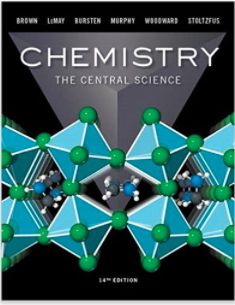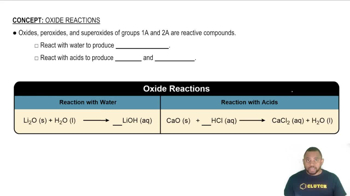Magnesium, the element, is produced commercially by electrolysis from a molten salt (the 'electrolyte') using a cell similar to the one shown here. (a) What is the most common oxidation number for Mg when it is part of a salt?

(a) What is meant by the term oxidation? (b) What is meant by the term oxidant? (c) What is meant by the term oxidizing agent?
 Verified step by step guidance
Verified step by step guidanceKey Concepts
Oxidation

Oxidant

Oxidizing Agent

Magnesium, the element, is produced commercially by electrolysis from a molten salt (the 'electrolyte') using a cell similar to the one shown here. (b) Chlorine gas is evolved as voltage is applied in the cell. Knowing this, identify the electrolyte.
Magnesium, the element, is produced commercially by electrolysis from a molten salt (the 'electrolyte') using a cell similar to the one shown here. (c) Recall that in an electrolytic cell the anode is given the + sign and the cathode is given the – sign, which is the opposite of what we see in batteries. What half-reaction occurs at the anode in this electrolytic cell?
(b) On which side of an oxidation half-reaction do the electrons appear?
Indicate whether each of the following statements is true or false: (a) If something is oxidized, it is formally losing electrons.
